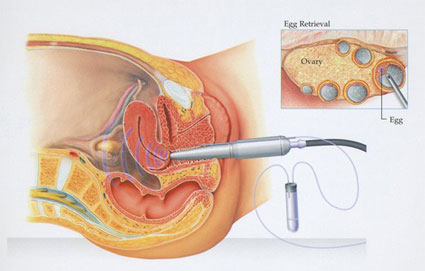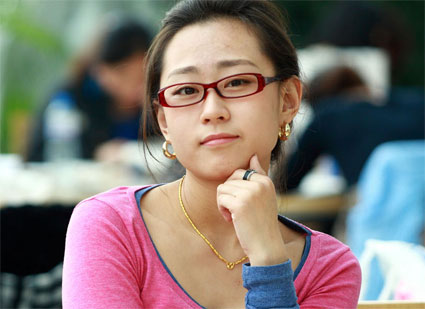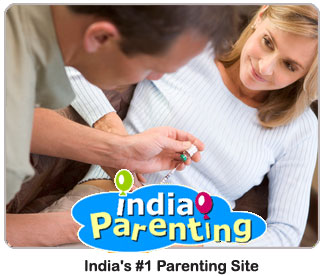(Renowned Infertility Specialist at Creation- Centre for Infertility & Assisted Reproductive Medicine at Fortis Hospitals, Bannerghatta Road, Bangalore)
The moment a child is born, the mother is also born. She never existed before. The woman existed, but the mother, never. A mother is something absolutely new.- Bhagwan Shree Rajneesh Unfortunately, there are many women today who are unable to experience the joy of motherhood despite their desire for the same due to some medical handicap (poor quality eggs, premature ovarian failure, advanced age). These women need to resort to
egg donation whereby another young woman (< 35 years) comes forward to donate her eggs to the recipient couple. These eggs are then fertilised with the recipient’s husband’s sperm. The fertilised egg (embryo) is subsequently implanted into the recipient’s womb thereby helping the woman achieve her desire of a pregnancy.
Despite huge advances in fertility technology, there is still no enough education and public awareness about the need and importance for egg donation in an altruistic manner, which is why it is still hard to get egg donors in India. Another saddening factor is that skin colour, sex, religion and caste obsessions have permeated down to the ovum banks as well. Many women who may wish to consider becoming egg donors are concerned about their future fertility and health. From my experience most fears are unfound and are led by misconceptions.
Egg donation is priceless and invaluable and cannot be compensated for in any form. The joy experienced by the commissioning couple can only bring a tremendous sense of satisfaction to the altruistic donor because only she understands the agony and joy of the motherhood.
Screening the Egg Donor
Egg donation is undertaken by infertility specialists who are extensively skilled in this unique field.
A detailed personal, medical as well as family history is obtained from the egg donor and subsequently a series of medical tests are conducted to ensure that the woman is healthy and capable of producing eggs that will result in a healthy baby. The process of egg donation is finalised only after the evaluation is complete. Basically, this evaluation eliminates any potential medical problems that might later arise.
There is also a fear amongst the commissioning couple that a given donor might fabricate her details and it is up to each fertility clinic to scrutinise the donor details carefully and ask for appropriate identification proof etc., in addition to the physical, psychological and biochemical screening tests.
Egg Donation Procedure
Through an egg donation cycle, the donor is given daily hormone injections and she is subjected to blood tests and scans over a period of 10 – 12 days to ensure that the growth of the eggs is appropriate. Once ready, ovulation is triggered and the eggs are extracted from the donor by an ultrasound guided procedure which takes about 20 – 30 minutes. This procedure requires a short anaesthetic. The donor can return home 3 - 4 hours after the procedure is completed. The eggs collected are then fertilised with the recipient's husband's sperms in the laboratory, either by IVF or ICSI and kept in the incubator for 2 - 5 days. This embryo (fertilised egg) is then transferred in to the womb of the recipient via the embryo transfer procedure which takes about 10 minutes. Two or three embryos may be transferred in a single sitting. Extra good quality embryos can be frozen for use at a later date. After donation, the donor has no real say in how the eggs are handled.
Success Rate of Egg Donation Cycles
The success rate of egg donation cycles is roughly 30 to 40 percent / treatment cycle. In case they fail to become pregnant they can have a repeat egg donation cycle or come back for a cycle with frozen embryos.
Side Effects of Egg Donation
The procedural side effects are minimal to the donor except for some cramping and discomfort in the abdomen. Ovarian hyperstimulation syndrome (OHSS) is also a possibility in 1:10 donors due to the growth of multiple eggs secondary to hormone injections – unfortunately, without these medications, only a single egg would be available for harvesting. OHSS causes short-term weight gain, fluid build- up in the tummy, and severe abdominal pain.
Anonymity of the Donor
Unless done within a family, most donor matches are anonymous however there are some cases when both parties - egg donor and intended parent - choose to meet one another. Currently there are no laws in India pertaining to donor anonymity however in countries like the UK, every child born through gamete donation has the legal right to know who their biological (genetic) parents are and clinics are obliged to maintain records long term.
Why Are Egg Donors Compensated?
Egg donor compensation covers the time, effort, inconvenience and high level of commitment necessary to accomplish the egg donation process. It is only fair then that the compensation received by an egg donor should mirror the importance of the process as well as the recipient couple’s commitment and generosity.
Although the general belief is that most women come forward to donate eggs do for monetary benefits alone, a recent western survey showed that 70% of women do so altruistically. The candidates are usually women who have relatives or friends who are infertile or are inspired by their stories. In India, however it is the opposite.
Does Egg Donation Affect the Donor’s Fertility?
Egg donation does not affect a woman’s own fertility since only a few eggs are retrieved and this neither affects the quality of the remaining eggs nor her ability to conceive when she is ready. An egg donor may however struggle to conceive subsequently should she have underlying medical problems which are completely unrelated to the egg donation programme – e.g. blocked tubes, uterine issues or even sperm challenges. In our experience, most egg donors find egg donation rewarding and fulfilling and this encourages them to donate again.
How is egg donation procedure carried out? Is fertility of a woman affected due to egg donation? What is the age limit for becoming an egg donor? Discuss here. 




























